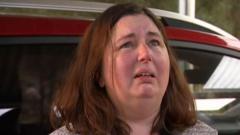The unexpected death of sacked transport minister Roman Starovoit, found dead shortly after his dismissal, has sent shockwaves through the Russian political elite, highlighting the perilous climate faced by government officials.
Shockwaves in Russian Politics Following Minister's Tragic Death

Shockwaves in Russian Politics Following Minister's Tragic Death
The recent death of former transport minister Roman Starovoit raises serious concerns about the political climate in Russia.
In a startling start to the week, Russia's political landscape was shaken by the sudden death of Roman Starovoit, former transport minister, only hours after President Vladimir Putin dismissed him from his position. Authorities reported the discovery of Starovoit’s body in a Moscow park, exhibiting a gunshot wound to the head, with a firearm alleged to be at the scene. Investigators imply the death is a suicide; however, the circumstances raise numerous questions.
The incident resonated profoundly in Russian media, with the tabloid Moskovsky Komsomolets labeling it "almost unique in Russian history." The last comparable incident dates back over thirty years, to when Soviet interior minister Boris Pugo took his life amid a failed coup attempt in 1991. Kremlin spokesperson Dmitry Peskov remarked on the inherent shock of a high-ranking official's death, but the government has largely remained silent overall.
Rumors have surfaced linking Starovoit’s demise to his prior role as governor of the Kursk region, where he oversaw the construction of inadequate defensive fortifications. Following his departure, his successor and former deputy have faced legal troubles, raising speculation that Starovoit may have felt the impending threat of prosecution.
International Affairs professor Nina Khrushcheva noted the chilling parallels between Starovoit’s choice and historical precedents where officials saw no escape from the political system, drawing comparisons to Stalin-era resignations. This incident has received limited coverage on state television, likely due to its potential to shape public perception negatively.
On Russia-1’s main evening bulletin, the report on Starovoit’s death was minimal, overshadowed by Putin’s appointment of a new minister. This muted response indicates the authorities’ awareness of the sensitive nature of such news and its implications.
The ramifications of this event ripple through the political strata, which now appears fraught with danger and instability. As Khrushcheva insightfully points out, today's political landscape presents a stark divergence from the aspirations of upward mobility once characteristic of such positions, serving as a stark reminder of the perils associated with the current regime.



















